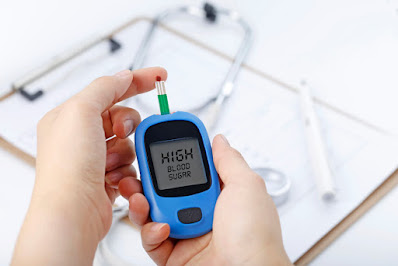Do Artificial Sweeteners Really Spike Your Blood Sugar? Separating Fact from Fiction
Artificial sweeteners have become a ubiquitous presence in our diet, gracing everything from diet sodas to sugar-free yogurt. For individuals with diabetes or those watching their blood sugar, the question of whether artificial sweeteners raise blood sugar levels is a crucial one. This blog post dives into the science behind artificial sweeteners and explores their potential impact on blood sugar control.
Artificial Sweeteners
Artificial sweeteners are sugar substitutes that provide a sweet taste without significantly adding calories to your diet. They work by stimulating your taste buds to perceive sweetness without actually being broken down by your body for energy, like regular sugar. There are several types of artificial sweeteners, each with varying degrees of sweetness and potential effects.
How Sweeteners Work:
-
Traditional Sugars: Table sugar and other simple carbohydrates are broken down by the body into glucose, which enters the bloodstream and causes a rise in blood sugar levels. The pancreas responds by releasing insulin, a hormone that helps cells absorb glucose for energy.
-
Artificial Sweeteners: These are chemically engineered substitutes for sugar that offer a sweet taste without containing calories or carbohydrates. Because they aren't broken down by the body, they don't directly raise blood sugar levels.
Do Artificial Sweeteners Directly Raise Blood Sugar Levels?
The short answer is generally no. Because artificial sweeteners aren't metabolized by the body for energy, they don't cause a direct rise in blood sugar levels. This makes them a suitable alternative for people with diabetes who need to manage their blood sugar intake.
However, the story might not be entirely black and white.
Emerging Research on Indirect Effects
While artificial sweeteners themselves might not directly raise blood sugar, some studies suggest they might have indirect effects on blood sugar control:
- Altered Gut Microbiome: There's ongoing research exploring the potential link between artificial sweeteners and changes in gut bacteria. These changes could potentially influence how your body regulates blood sugar in the long term. More research is needed to confirm this connection.
- Appetite and Insulin Response: Some studies suggest that consuming artificial sweeteners might lead to increased cravings for sweet foods later, potentially disrupting blood sugar control. Additionally, there's limited evidence suggesting that artificial sweeteners might trigger a slight insulin response in some individuals.
The Bottom Line: Artificial Sweeteners and Diabetes Management
Artificial sweeteners can be a valuable tool for people with diabetes to manage their blood sugar by reducing overall sugar intake. However, it's important to consider them within the context of a healthy diet. Here are some key takeaways:
- Artificial sweeteners are not a magic bullet. Focus on a balanced diet that incorporates whole grains, fruits, vegetables, and lean protein sources.
- Be mindful of potential indirect effects. While the research is ongoing, be aware of the possibility of altered gut bacteria or changes in appetite.
- Moderation is key. Even with artificial sweeteners, limiting sugary drinks and processed foods is essential for overall health.
Consult Your Doctor
If you have diabetes or questions about incorporating artificial sweeteners into your diet, consult a healthcare professional. They can provide personalized guidance based on your individual needs and health goals.
Conclusion
Artificial sweeteners can be a helpful tool for blood sugar management, but they should be used strategically within a healthy diet. While the research on potential indirect effects is ongoing, focusing on a balanced diet that minimizes processed foods and added sugars remains paramount for optimal health and diabetes management.
